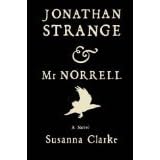
I reread this fun little collection earlier this week. It was published by a company called Cyberosia earlier in the decade, but they would appear to have anticipated the graphic novel boom/fad a little too soon, and it doesn't look like they're around currently. I had no idea this book existed until I found it in the cheap shelves at Heroes Aren't Hard to Find in Charlotte a couple of years back.
It compiles several adventures of Peter Milligan and Brett Ewins' hyperfashionable 30th-Century tough guy private eye which were originally published in the mid-1980s, first in the indie anthology Strange Days and later in Deadline. Unfortunately, it doesn't include any background details, so it is impossible to determine just how many of Nemo's bizarre cases made the cut for this collection. I don't imagine that it's complete, and the optimistic "volume one" on the front just reinforces that view.
The stories themselves are dated by their design. Ewins' world is one where the shoulderpads and skinny ties of 1984 never went out of style even as the architecture morphed into the "thin-tower with a mushrooming penthouse" future look that was common in Keith Giffen's LSH at the time. Steve Dillon contributes one tale which is just gorgeous to look at, and there are a pair of text adventures which only show just how well Ewins and Dillon use pacing in the comic adventures for much better comedic effect.
Nemo himself is a hilarious presence, an unstoppable alpha male who confidently finds the solution to outlandish sci-fi situations involving exploding nuns and the magical power of Bing Crosby. It's telling that the book was published with a glowing quote from Warren Ellis on the back. I've not read much Ellis - probably just enough to know that I'm not especially interested in Ellis - but I think his fans will quickly see that his characters Lazarus Churchyard, Spider Jerusalem and Elijah Snow all have Nemo as their spiritual godfather. Recommended, therefore, for fans of either Milligan or Ellis. I can't see this really converting anybody not familiar with their work already.

Face front, true believers! The Hero Initiative, an organization which provides supplemental medical care and other benefits for comic book veterans in need of assistance, came up with this wild and woolly trip through the sixties and seventies via the eyes of Marvel Comics' one-and-only Smilin' Stan Lee!
As any tried-and-true FOOM knows, Smilin' Stan used to write a little column in each month's Bullpen Bulletins. Stan's Soapbox was in equal parts a place to hype forthcoming projects, be it the first bookshelf collections of Mighty Marvel storylines, calendars or short-lived magazine ventures like Pizzaz, or personal appearances at various college campuses, or just use the soapbox to talk a little about current events.
Alongside a running narrative of current events, both at Marvel and on the world stage, this slim book reprints all of Stan's Soapboxes, along with remembrances from other creators and current Marvel editorial bods. Honestly, I found the book completely charming, and the design and layout are quite nice. Certainly it's not a book to be read cover-to-cover, but if you grew up in what that mysterious blogger known only as The Groovy Agent has termed the Groovy Age of Comics, then this is a superb little distraction, and probably could be read very well in tandem with one of these recent coffeetable histories of Marvel, like that new Marvel Chronicle book that came out late last year. Recommended for people born between 1965 and 1975.
I figured out that the best way to do these periodic reviews without getting bored will be to chiefly review books that aren't part of a series. I might find cause to mention a series in the monthly Reprint This! update, if I can do that right!, but otherwise I'm usually only going to mention stand-alone books in this column. That will mean fewer of them, but also fewer examples of me trying to explain how volume 14 of Dr. Slump is that much different from volume 13. That should keep things more readable.
(Originally posted January 23, 2009 at hipsterdad's LJ.)



